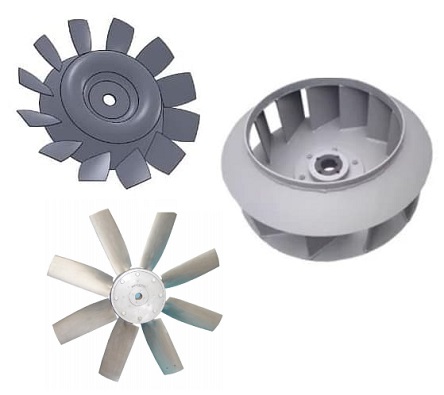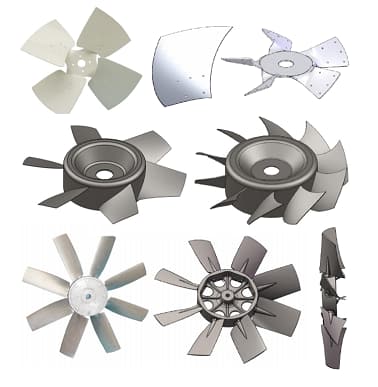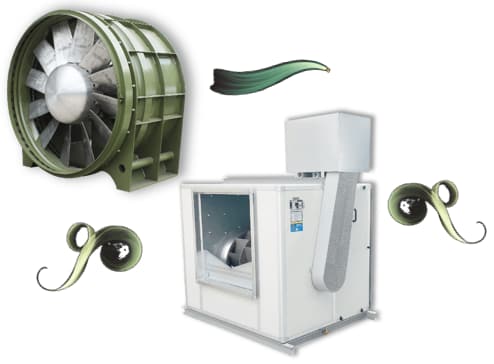Toilet Exhaust Fan: Essential for Healthy and Comfortable Indoor Environments
Toilets and washrooms are high-moisture, high-odor environments that, if poorly ventilated, can lead to discomfort, structural damage, and even health issues. This is where toilet exhaust fans play a crucial role. A well-designed and properly installed toilet exhaust fan not only removes unwanted odors but also prevents the growth of mold, mildew, and bacteria by controlling humidity.
Toilet Exhaust Fan
A toilet exhaust fan is a mechanical ventilation device that pulls air from the bathroom and expels it outdoors or into a designated duct system. It typically includes a fan, a housing box, and sometimes a backdraft damper or filter. Depending on the design and use case, toilet exhaust fans can be mounted on the ceiling, wall, or window. These fans help maintain healthy humidity levels, minimize condensation, and provide a more pleasant environment for users.
According to the U.S. Environmental Protection Agency (EPA), poor ventilation in bathrooms can lead to long-term moisture damage and compromise air quality, making mechanical ventilation necessary in both residential and commercial settings.
Key Functions of a Toilet Exhaust Fan
Odor Removal
One of the most obvious and immediate benefits is the elimination of unpleasant smells from toilets, especially in enclosed spaces.
Humidity Control
After a hot shower or bath, moisture lingers in the air. Without proper ventilation, this creates a breeding ground for mold and mildew.
Structural Protection
Excess humidity can damage paint, drywall, wood, and metal fixtures over time. A quality exhaust fan helps protect building materials and reduces maintenance needs.
Air Quality Improvement
Proper airflow reduces the concentration of airborne pollutants like volatile organic compounds (VOCs), improving respiratory health.
Toilet Exhaust Fan Types and Mounting Options
There are various types of toilet exhaust fans to meet the diverse architectural and usage needs:
Ceiling-Mounted Exhaust Fans
Installed into the ceiling cavity, these are common in modern apartments and office restrooms. They are ideal when ducting is available above the ceiling space.
Wall-Mounted Fans
Useful when the ceiling structure is unavailable or difficult to modify. Suitable for small public toilets or older buildings.
Inline Duct Fans
These are hidden in ductwork and suitable for remote extraction systems in multi-stall restrooms or integrated building ventilation.
Window-Mounted Fans
Cost-effective and easy to install, often used in older buildings or temporary facilities.
Quality toilet exhaust fans are designed with moisture-proof housings, ball-bearing motors, and low-noise impellers to deliver lasting performance and user comfort.
Design Considerations and Installation Guidelines
Selecting the right toilet exhaust fan requires evaluating several factors:
-
Airflow Capacity (CFM): The fan’s capacity should match the room size. A general guideline is at least 1 CFM per square foot of bathroom area.
-
Noise Level: Measured in sones, a quieter fan (under 2.0 sones) enhances user comfort, especially in residential settings.
-
Energy Efficiency: Energy Star-certified models or fans with EC motors can reduce power consumption and operational costs.
-
Backdraft Prevention: Fans should include dampers to prevent outdoor air from flowing back into the bathroom.
Smart Features in Modern Toilet Exhaust Fans
As buildings get smarter, so do ventilation systems. Modern toilet fans may include:
-
Humidity Sensors: Automatically turn on the fan when moisture levels rise.
-
Motion Sensors: Activate the fan when a user enters the room.
-
Timer Functions: Allow fans to run for a set period after the light is turned off.
-
Remote Control and App Integration: Useful in smart homes or commercial buildings with BMS.
Manufacturers offer customization for OEM clients, including smart fan modules compatible with centralized control systems or IoT platforms.
Applications in Residential and Commercial Projects
Toilet exhaust fans usually installed in:
-
Residential bathrooms and powder rooms
-
Public restrooms in shopping malls and transport terminals
-
Hotel washrooms requiring low-noise performance
-
Factory or warehouse toilets needing rugged and dust-resistant models
Manufacturers support project-specific customization of fan casing, airflow range, installation accessories, and electrical configurations based on regional compliance and user needs.
Conclusion
Toilet exhaust fans may not draw attention like central HVAC systems or rooftop units, but their role is just as vital in maintaining air quality and occupant comfort. A well-designed fan ensures healthier living and working spaces while prolonging the life of buildings. Whether you're managing a commercial project or upgrading residential bathrooms, a high-performance toilet exhaust fan from a trusted manufacturer like Zhejiang Shuangyang Fans Holding Co., Ltd offers both peace of mind and long-term value.
Note: The content of the article cannot avoid omissions and errors. Welcome to propose corrections.
 Libere el poder del ventilador de gabinete
Libere el poder del ventilador de gabinete
 Ventilador axial industrial: Cómo mantener una circulación de aire adecuada
Ventilador axial industrial: Cómo mantener una circulación de aire adecuada
 Ventilador de ventilación industrial: manteniendo una buena calidad del aire
Ventilador de ventilación industrial: manteniendo una buena calidad del aire
 Ventilador a prueba de explosiones: garantizando la seguridad en entornos peligrosos
Ventilador a prueba de explosiones: garantizando la seguridad en entornos peligrosos

